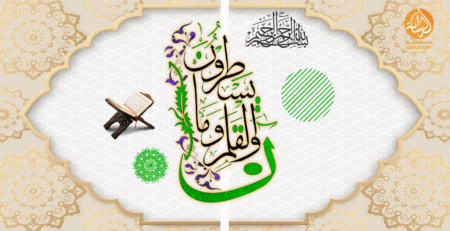Life After Death: Christianity and Islam Perspectives
When contemplating the vast mysteries of existence, one question looms particularly large: What happens after we die? This enigmatic query has been a central focus of human thought and spirituality throughout history. For adherents of Christianity and Islam, the afterlife holds profound significance, serving as the ultimate destination and fulfillment of divine promises.
Christianity’s Perspective on Life After Death
In Christian theology, the concept of the afterlife revolves around the notions of heaven and hell. According to Christian belief, individuals who accept Jesus Christ as their savior and follow his teachings will attain eternal life in heaven, where they will experience divine bliss and communion with God. Conversely, those who reject Christ or lead sinful lives face the prospect of eternal damnation in hell, a realm of torment and separation from God.
Salvation plays a pivotal role in determining one’s fate in the afterlife. Christians believe that through faith in Jesus Christ and repentance of sins, individuals can attain salvation and secure their place in heaven. The doctrine of judgment day holds that all souls will be accountable for their actions, with God serving as the ultimate arbiter of righteousness.
Islam’s Perspective on Life After Death
In Islam, the concept of the afterlife is intricately tied to the notion of paradise (Jannah) and hellfire (Jahannam). Muslims believe that those who lead righteous lives in accordance with Islamic principles will be rewarded with entry into paradise, where they will experience boundless joy and fulfillment in the presence of Allah. Conversely, individuals who deviate from the path of righteousness and reject the teachings of Islam may face punishment in hellfire, a realm of agony and suffering.
The attainment of paradise is contingent upon the performance of good deeds and adherence to the tenets of faith. Muslims believe in the accountability of all souls on the day of judgment, when each individual will be judged based on their deeds and intentions. This belief underscores the importance of piety, moral conduct, and devotion to Allah in determining one’s ultimate destiny.
Comparing and Contrasting Christian and Islamic Views
While Christianity and Islam share certain fundamental beliefs about the afterlife, such as the existence of heaven and hell and the concept of judgment day, there are notable differences in their theological interpretations. For example, Christians emphasize the centrality of Jesus Christ as the mediator between humanity and God, whereas Muslims view Muhammad as the final prophet and messenger of Allah.
Additionally, the criteria for salvation and the nature of divine judgment vary between the two faiths. Christians emphasize the role of faith in Jesus Christ as the means of obtaining salvation, while Muslims stress the importance of both faith and good deeds in earning divine favor.
Cultural and Societal Implications
The beliefs and teachings regarding the afterlife in Christianity and Islam have profound implications for individuals and societies. Concepts such as reward and punishment in the hereafter serve as powerful motivators for moral behavior and ethical conduct. These beliefs also shape religious practices and rituals, influencing everything from prayer and fasting to acts of charity and compassion.
Furthermore, the prospect of life after death imbues adherents with a sense of purpose and meaning, providing solace in times of adversity and hope for the future. The belief in divine justice and accountability fosters a sense of responsibility towards oneself and others, encouraging individuals to strive for righteousness and virtue in their lives.
Conclusion
In conclusion, the perspectives of Christianity and Islam on life after death offer profound insights into the human condition and the nature of spiritual existence. While each faith has its own distinct teachings and doctrines regarding the afterlife, both share a common emphasis on the importance of faith, morality, and accountability. By contemplating these profound truths, individuals can find comfort, guidance, and inspiration in their journey towards the eternal realm.
FAQs
- Are heaven and paradise the same in Christianity and Islam?
- While both represent the ultimate destination for believers, the theological interpretations and descriptions of heaven and paradise vary between Christianity and Islam.
- Do Christians and Muslims believe in the resurrection of the body?
- Yes, both Christianity and Islam affirm the belief in the resurrection of the body as part of their respective eschatological doctrines.
- Is there a concept of purgatory in Islam?
- No, Islam does not have a concept of purgatory similar to that found in certain Christian traditions.
- How do Christians and Muslims view the concept of eternal damnation?
- Christians believe in the eternal punishment of hell for those who reject salvation, while Muslims similarly believe in eternal damnation for those who lead unrighteous lives.
- What role do prophets play in the afterlife according to Christianity and Islam?
- Both faiths acknowledge the significance of prophets as messengers of God who guide humanity towards righteousness and salvation.









Leave a Reply